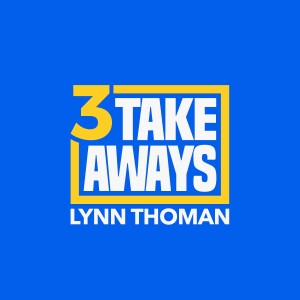Ham is an active long-time member of the Boston entrepreneurial community, a seasoned board members, a prolific author on the subject of boards/governance and the founder of the Launchpad Venture Group, one of the driving forces behind organized angel investing in the United States.
In this episode Ham, we discuss many areas of board practice with someone that for many years has helped and written about how to make boards better.
We love our listeners! Drop us a line or give us guest suggestions here.
Big Ideas/Thoughts/Quotes:
Board questions around AI: What are the strategic objectives of the company, what are the business problems and the opportunities that that company should be going after. Three questions to begin:
1. What specific business problems or opportunities do you plan to address with AI?
And how do you anticipate that AI is going to help the company achieve its strategic objectives? It's all great to have tools like AI, but if they're not fundamentally driving the business in a direction that helps you achieve those strategic objectives, why bother?
2. How will you manage the ethical and legal implications of using AI, such as bias, discrimination, and compliance with regulations and industry standards?
AI tools where they haven't been trained on a wide enough data sets, they haven't had enough experience, nor have the users of it have enough experience to understand whether they're going down a path that might lead to issues down the road.
3. How will you communicate the use of AI to your stakeholders, and that includes employees, customers, investors, and regulators. And how will you address the concerns about the use of AI?
“There's not time for this in every board meeting, but a board should have at least one or two strategic sessions a year that are focused on technology.”
“When you think about a financial institution, a healthcare institution, they have a lot of data that is extremely sensitive; personal data, healthcare data, financial data. You don't want that escaping out into the world by using one of these tools that you don't necessarily know what it's going to do with that data.”
One of the biggest concerns is that sort of bias and discrimination that can occur with AI tools where they haven't been trained on a wide enough data sets, they haven't had enough experience, nor have the users of it have enough experience to understand whether they're going down a path that might lead to issues down the road.
even if you don't get the full effect, it's important to get it right so that as you go forward, you've identified any issues that might exist, whether it's bias, discrimination, or something else before it's everywhere, which will make it more difficult to control at that point.
Whether you need to explain that AI is, for example, reading your medical scan, your MRI or your CT, or whether you need to explain to your customers that an AI is either giving you a thumbs up or a thumbs down on we're giving you a mortgage or whatever. I think that's going to be a more challenging question about how you communicate that- I don't think there's necessarily a good answer for that today
I do want to say one thing about all three of these questions that I've asked, they are questions that you should be asking of the chief technology people in the organization, not just the CTO because the CTO may or may not be the one who is most expert in these particular areas
Raza, what do you think about having an AI board member?
I think a copilot, an assistive technology, is definitely a very interesting thing for boards. It can make them more effective. It is possible that you have a large set of materials and going through those, you do miss things as a human, but an automated process and AI could definitely come up with more. This is a really great idea for a startup, and I think somebody will do it.
Note: All of the board questions generated by ChatGPT about AI are listed below
Board of Cambridge Trust
I was brought onto the board specifically to address one of the new strategic areas that Cambridge Trust wanted to go in. Massachusetts has a very high concentration of companies in sort of the innovation economy, startup tech, and life science companies. It was seen by corporate management at Cambridge Trust that this would be a good area for growth within the bank.
Most tech startups are losing money and most banks don't like to loan money to organizations that are losing money, so I had to explain what kinds of companies that, even though they might be losing money, would have good solid financials that would make it so that they could be the type of institution that you would give a loan to.
Lead Director
In our case, the lead director has several key roles.
One, the lead director speaks to the CEO at least on a weekly basis. It's sort of a sounding board for the CEO to update on what's going on that may need the board to hear more detail about. I also work closely with the CEO to determine what the agenda for the next board meeting is going to be. During board meetings, the lead director leads executive sessions, whether those executive sessions include CEO or whether they're just the independent directors.
Term Limits
“Up until last year, we had age-type of term limit and that was the age of 72. That was the mandatory retirement age. There are two shareholder services out there, ISS, Institutional Shareholder Services and Glass Lewis, and both of them are not proponents of age-based term limits so we've removed our age-based term limits.”
Woods Hole Oceanographic Institution
For those who don't know anything about Woods Hole Oceanographic Institution…it is the pre-eminent oceanographic research institute in the world. It's based in Woods Hole, Massachusetts and I spend a lot of time down here in the summer.
I was brought on to help the institute with issues around technology transfer, so research institute, lots of great scientists and engineers, sometimes they come up with ideas and products that could potentially be commercialized, so the goal was to figure out what's the best way to do that.
Model Startup Board
There are three key attributes that I look at for building sort of a model board.
First of all, diversity, and we've talked about that a little bit already, but great boards are comprised of individuals with diverse talents, background, instincts, and expertise. Next, you need relevance. Diverse backgrounds and experience are only useful to the company if they're relevant to where the company is going, not where the company was, where it's going. And then aligned, great boards are focused on a common long-term goal, and they ensure that senior management buys into that future.
More Episodes
All Episodes>>Create Your Podcast In Minutes
- Full-featured podcast site
- Unlimited storage and bandwidth
- Comprehensive podcast stats
- Distribute to Apple Podcasts, Spotify, and more
- Make money with your podcast












